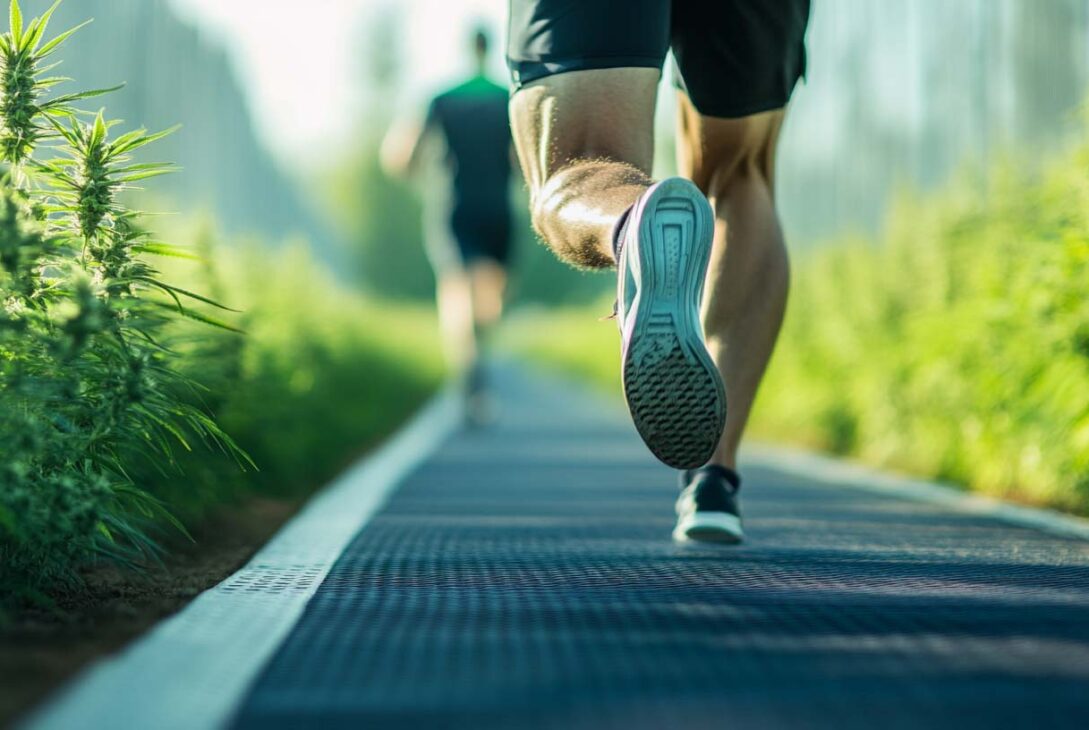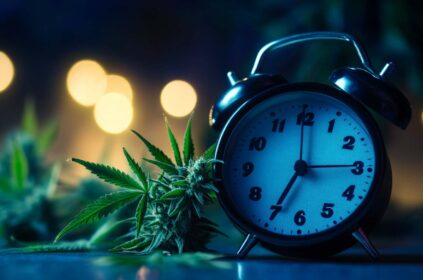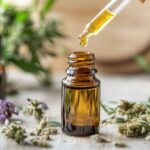Investigating Cannabinoid Effects on Athletic Performance: A Comprehensive Guide
Introduction
The world of athletics is ever-evolving, with athletes seeking innovative ways to enhance their performance and expedite recovery. Enter cannabinoids—compounds derived from the cannabis plant, which have captured the attention of sports organizations, coaches, and athletes alike. Among these compounds, Cannabidiol (CBD) and Tetrahydrocannabinol (THC) are often at the forefront due to their potential benefits, ranging from pain relief to improved recovery times. This guide aims to explore the effects of cannabinoids on athletic performance, highlighting their roles in inflammation reduction, pain management, and recovery enhancement.
The Role of Cannabinoids in Athletic Performance
Enjoyment and Mood Enhancement
Exercise can sometimes feel like a chore, but cannabinoids may change that perspective. Research conducted at the University of Colorado highlights that both CBD and THC can enhance an athlete’s enjoyment during exercise. Participants reported greater mood elevation when using these cannabinoids, with studies indicating that CBD users experienced even more uplifting effects than those who consumed THC without the psychic “high.” The mood-enhancing benefits can help athletes get into the right mindset for training or competition.
Performance vs. Enjoyment
While the mood-boosting effects of cannabinoids are attractive, it’s essential to differentiate enjoyment from performance enhancement. Evidence suggests that using cannabis before engaging in physical activity may lead to a decline in performance metrics—slower times, increased heart rates, and potential dizziness are common concerns. Athletes looking to improve their performance should consider the impact of cannabinoids on their physical capabilities in conjunction with their mental state.
Anti-Inflammatory Properties
One of the most promising aspects of CBD is its anti-inflammatory properties. This quality is particularly valuable for athletes who subject their bodies to high levels of stress and strain. When muscles undergo intense workouts, micro-tears can lead to inflammation, resulting in soreness and extended recovery times. CBD has demonstrated the ability to reduce this inflammation, allowing athletes to recover more efficiently.
Real-Life Application
Picture an elite marathon runner facing muscle fatigue and inflammation post-race. Incorporating CBD into their recovery routine—perhaps through topical creams or tinctures—may significantly decrease that lingering soreness, allowing them to resume training sooner and without the hefty consequences typically associated with muscle repair.
Pain Relief
Both CBD and THC are known for their analgesic properties, meaning they can effectively alleviate pain. THC interacts with the brain’s receptors to lessen pain perception, while CBD works differently by modulating the endocannabinoid system to provide relief without psychoactive effects. This difference is especially beneficial for athletes needing to manage chronic pain or recover from injuries without impairing their mental clarity.
Clinical Trials and Evidence
Exciting developments have emerged with clinical trials funded by the National Football League, exploring the therapeutic effects of THC and CBD in post-competition pain management among professional rugby players. These trials aim to measure a variety of outcomes, such as pain relief, emotional well-being, and physical functionality. The outcomes could potentially pave the way for a paradigm shift in how sports medicine views cannabinoid therapy.
Recovery and Rehabilitation
Muscle Relaxation
Post-exercise muscle relaxation is crucial for recovery. Cannabinoids can assist in reducing muscle cramps and spasms, thereby promoting faster recovery times. For athletes, this means less downtime between training sessions and competitions.
Improved Sleep
Sleep is the unsung hero of athletic performance. Many athletes struggle with quality sleep due to the physical and psychological pressures associated with their sport. Research indicates that high-CBD strains can enhance sleep quality by addressing anxiety and promoting relaxation. A well-rested athlete is often a high-performing athlete, showcasing the intrinsic link between cannabinoids, sleep, and performance.
Safety and Considerations
Although the potential benefits of cannabinoids are substantial, it is vital to approach their use with caution. Possible side effects such as dizziness, changes in heart rate, and interactions with other medications need to be considered. Furthermore, athletes must navigate the regulatory landscape concerning cannabis use. Both THC and CBD fall under scrutiny by the World Anti-Doping Agency, so it’s critical to understand the rules governing their use in competition to avoid penalties.
Conclusion
As the discussion surrounding cannabinoids and athletic performance continues to unfold, it is clear that these compounds can offer significant benefits. Here are some key takeaways:
- Enhanced Enjoyment: Cannabinoids can improve the mood and experience of athletes during workouts.
- Anti-Inflammatory Effects: CBD aids in reducing inflammation, fostering swifter recovery.
- Pain Relief: Both CBD and THC serve as effective pain management options.
- Muscle Relaxation and Sleep: Cannabis not only helps relieve muscle tension but also enhances sleep quality.
- Safety Considerations: Athletes should remain vigilant about the legal implications and possible side effects associated with cannabinoid use.
Actionable Tips
- Consult a Healthcare Professional: Before incorporating cannabinoids into your regime, discuss it with a healthcare provider to tailor the right approach for your needs.
- Choose the Right Strain: Opt for high-CBD strains for recovery and pain relief, minimizing psychoactive effects while maximizing therapeutic benefits.
- Monitor Dosage: Pay attention to recommended dosages to stay within a safe therapeutic window and avoid adverse effects.
- Stay Informed: Educate yourself on the latest research, clinical trials, and evolving regulations surrounding cannabinoid use in sports.
Integrating cannabinoids responsibly into training and recovery protocols could greatly contribute to both performance and overall well-being for athletes. As the field of cannabinoid research expands, staying proactive in education and awareness will empower athletes to make informed choices for their journeys.





















